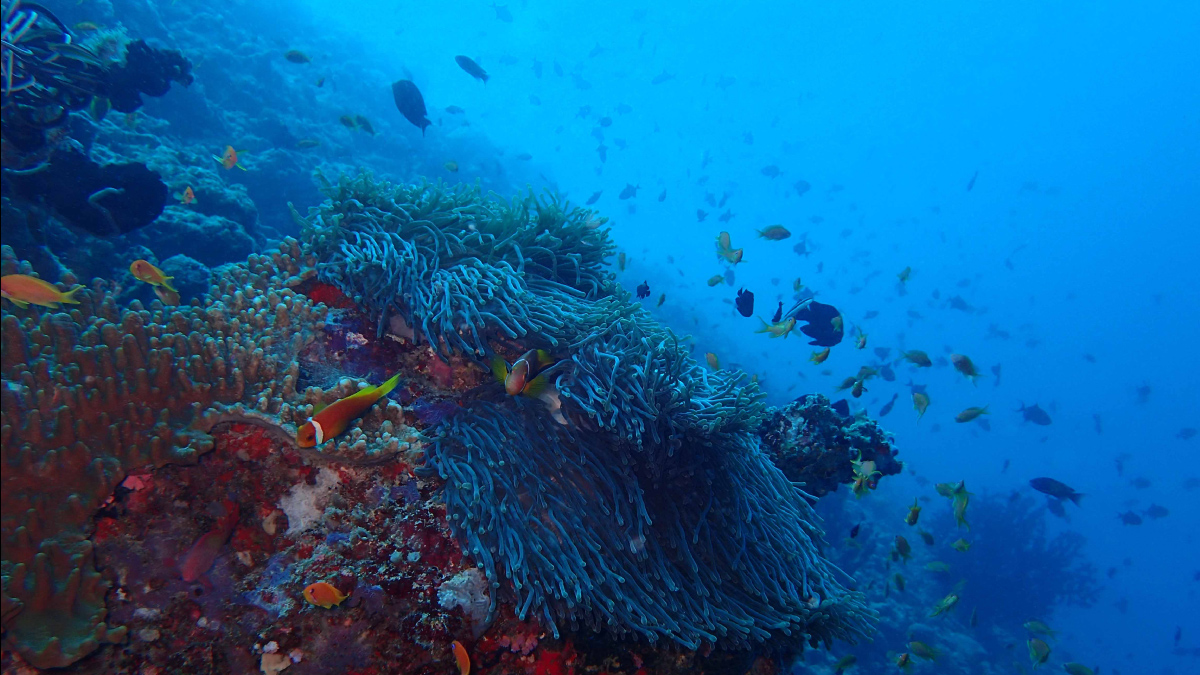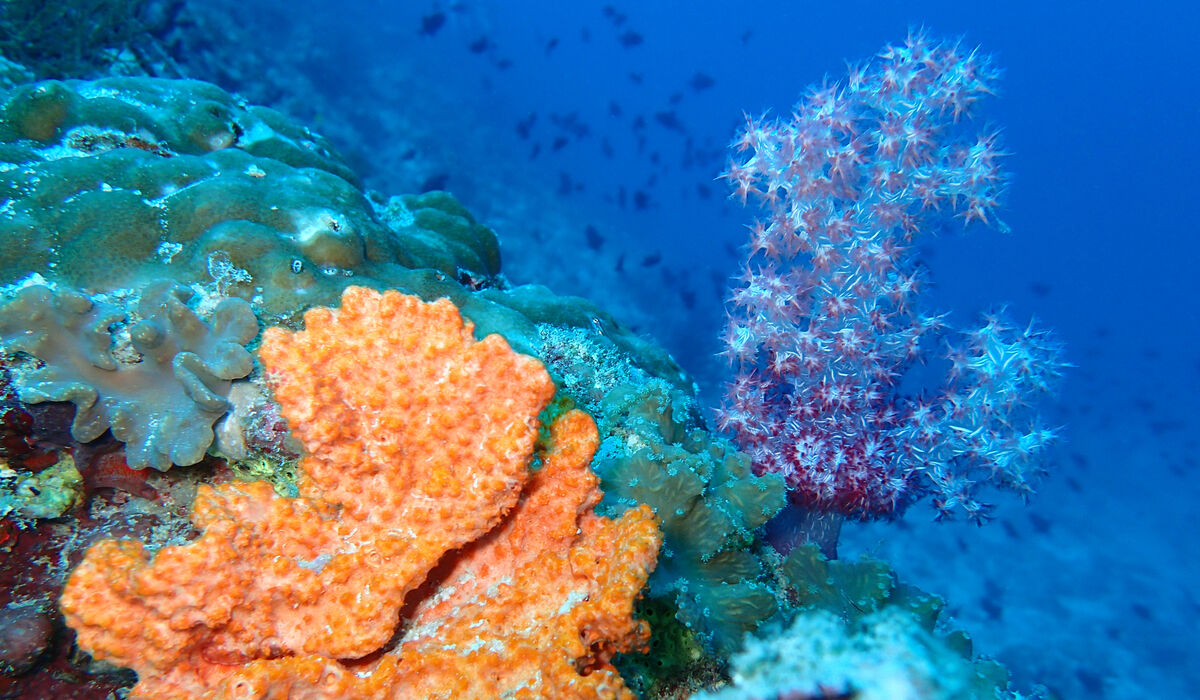
The Maldives is renowned for its kaleidoscopic coral reefs, which is why we’re taking a deep dive into this subject with The Nautilus’s resident expert and marine biologist Emily Wilson.
In our second post in this three-part series, Emily continues the story of the reef’s unsung heroes. Dedicated to the lesser-known creatures whose roles in the health and preservation of the reefs are absolutely fundamental – and whose behaviours within the ecosystem are ever-more important as reefs across the globe face the continuing threat of destruction.
In this blog post, we’re looking at the coral-saving snail, the giant triton
Insights from our marine biologist:
”Unsung Heroes of the Reef” (Part 2 of 3)
As explained in the previous post, coral reefs cover just one per cent of the seafloor, yet play a pivotal role within the aquatic ecosystem and within the Earth’s ecology as a whole. They are home to one-quarter of all sea life, and their plant and algae residents breathe life-giving oxygen into the oceans. The coral reefs help regulate our planet’s climate by absorbing and storing carbon from the atmosphere.
With the global decline of these vital coral metropolises, all efforts to preserve and conserve these underwater kingdoms are a top priority. And one such effort is to spotlight the creatures that do the work naturally, which brings us to our second unsung hero — the giant triton snail.

Unsung Hero #2: The Snail Saviour
The villain
The crown-of-thorns starfish (COTS) is aptly named for its spiky appearance and venomous spines. As a specialist feeder that consumes only the flesh of live corals, this invertebrate is infamous for its incredible appetite for coral and consequently, the damage it causes to reef-building corals.
This starfish is also the most fecund of any marine organism, with the females producing millions of eggs during the spawning season. When in close proximity, their fertilisation rate is sky-high, quickly leading to population outbreaks. A single adult starfish can consume up to 10m2 of coral tissue per year, and an outbreak of hundreds of thousands to millions of COTS can decimate the entire reef ecosystem. In fact, COTS are one of the major causes of live coral loss on the Great Barrier Reef, the largest reef system on Earth, second only to the catastrophic power of tropical cyclones.
Surprisingly few predators feed upon the coral foundation of tropical seascapes. As corals are non-mobile, sessile organisms, they possess no discernible defence against a hungry, hunting COT. There is little chance of recovering from an attack, as all that remains is the barren, white skeleton. But amongst all the despair and destruction, there is an unlikely hero that fights against the coral-munching tyrant — the sea snail.

The hero
Cue the majestic giant triton, a snail of godly proportions. Named after the Greek god Triton, son of Poseidon, it is one of the world’s largest snails, reaching a length of up to half a metre. The very presence of a giant triton in the vicinity is enough to cause the starfish to scarper. There are few things more enticing for a triton than the scent of a COTS. Once detected, the hungry snail will embark on a slow yet dedicated hunt to devour its prey.
These unsung heroes are not only the saviours of reefs. The triton shells also hold importance to island nations, as they are used as instruments to make call sounds during festivities. In the Maldives, the shell is treasured, coveted and also feared by the people as it was an auspicious item used to perform black magic. Due to their unprecedented size and outstanding beauty, giant tritons have long been unsustainably harvested, primarily for the purpose of selling them to shell collectors. But now, more than ever, it is crucial to recognise and conserve this magnificent mollusc. As local legend says, the giant triton is the true guardian of the Maldives, and will thus be the saviour of our reefs.
Look out for the next article in our series by Emily, coming soon! And get in touch with us at [email protected] to plan your getaway to our ocean paradise.
